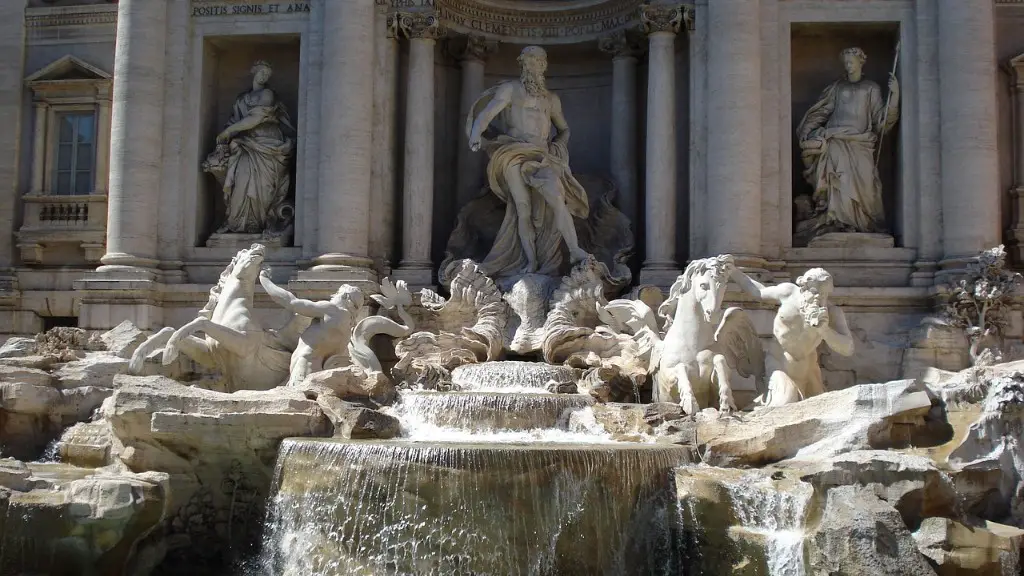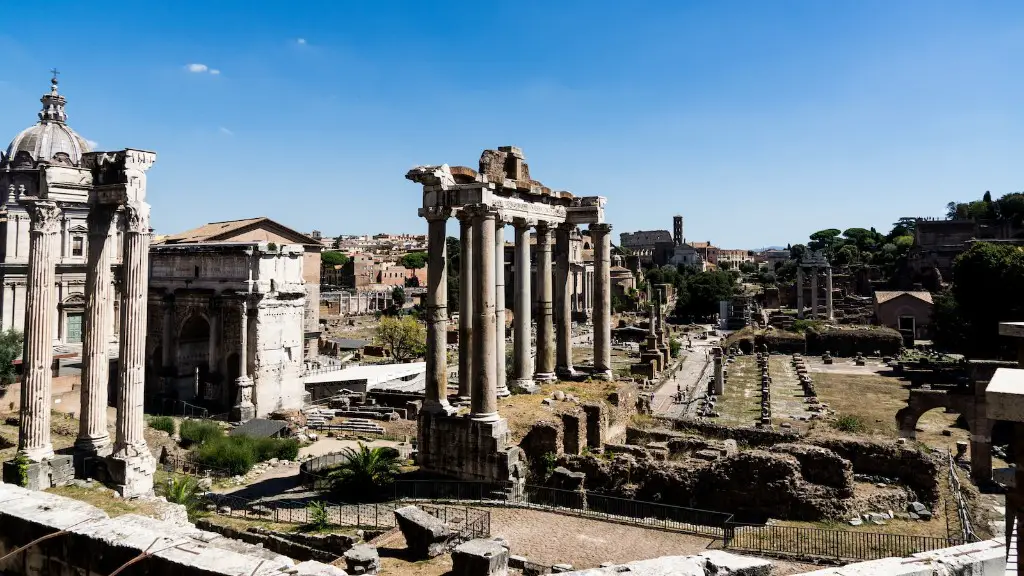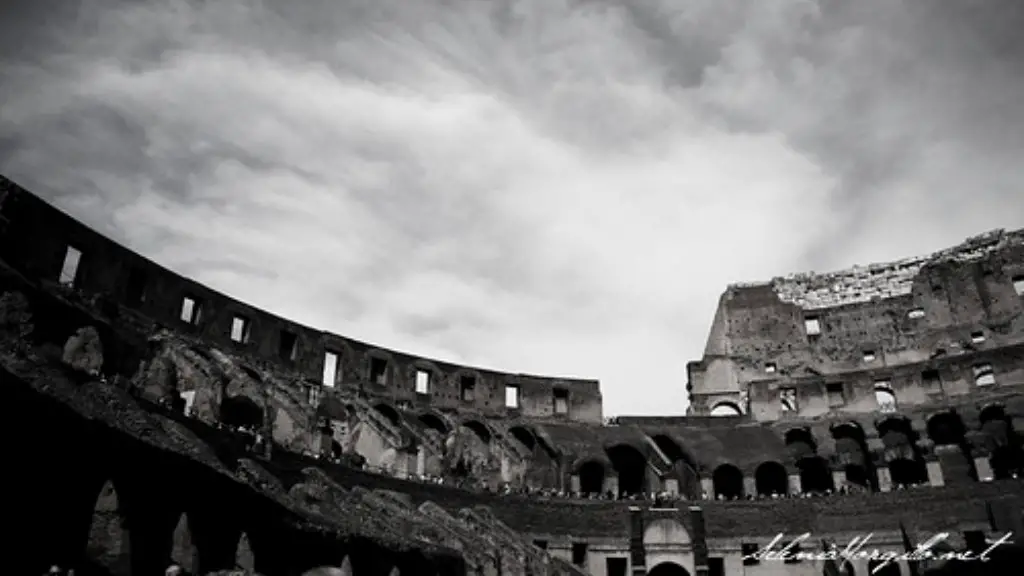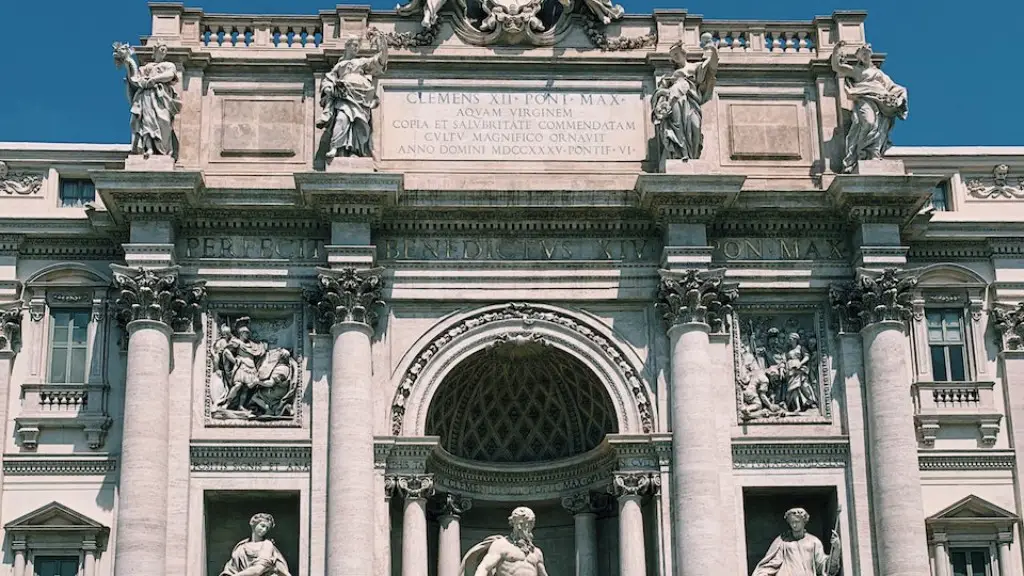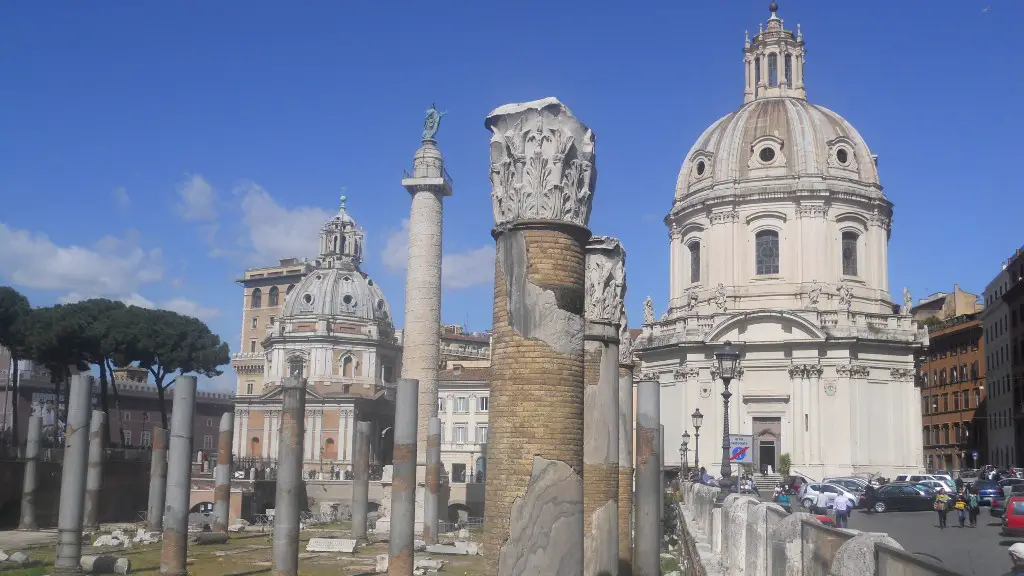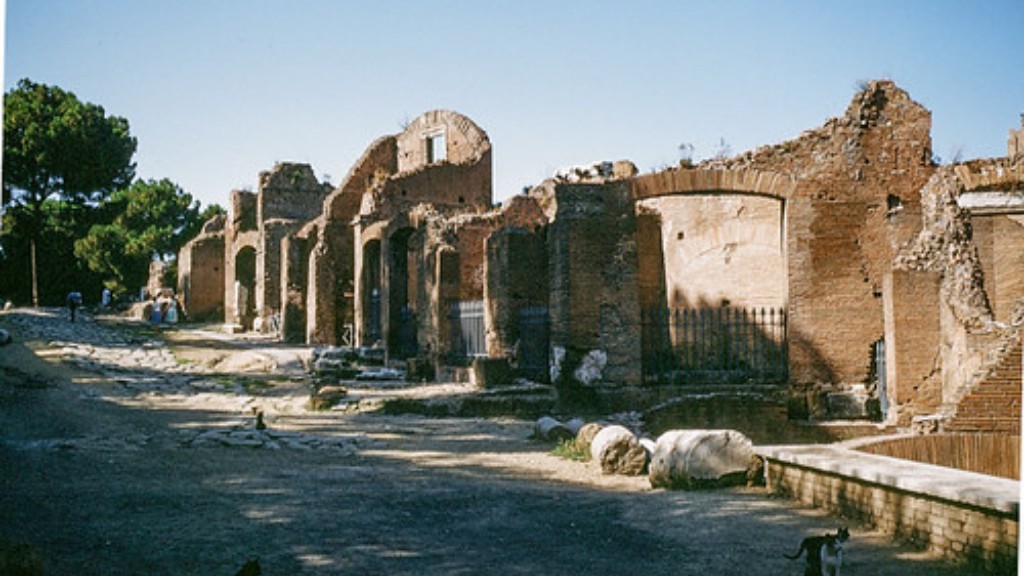The ancient Romans viewed the Jews as a people who were religious, but also as a people who were different. The Jews were seen as a people who were set apart from the rest of the world, and this made them both interesting and strange to the Romans. The Romans were fascinated by the Jewish religion and the way that the Jews lived their lives.
The ancient Romans viewed the Jews as a people who were to be tolerated, but not necessarily respected. This is reflected in the way that the Roman authorities treated the Jewish people during the time of the Roman Empire.
How were the Jews treated by the Romans?
Rome has a long history of interacting with the Jewish people, dating back to the time of the Roman Empire. Soon after the empire was established, Rome recognized Judaism as a legal religion and allowed Jews to worship freely. However, Rome always viewed the Jews with suspicion and periodically persecuted them. One of the most serious conflicts between Rome and the Jews began in Judea in AD 66 when Nero was emperor. The Jews revolted against Roman rule and were eventually crushed, leading to the destruction of the Second Temple in Jerusalem. This event caused a rift between the Jewish people and Rome that has never been fully healed.
The Roman governors of Judaea were generally tolerant of the Jewish religion, as was the case with Jews in Rome. However, Roman inefficiency and tactlessness, along with famine and internal squabbles, led to a rise in Jewish discontent. This eventually led to the Jewish War of 66-70 AD, which resulted in the destruction of the Second Temple and the expulsion of the Jews from Judaea.
Why did Romans fear Christianity
There is no doubt that Christians were persecuted for their refusal to worship the emperor. However, it is important to note that this was not the only reason why they were disliked by the general population. Their refusal to worship the gods or take part in sacrifice was also a major source of contention. This was because those living in the Roman Empire were expected to participate in these activities.
The Jews rioted when Nero’s appointed governor, Florus, seized large amounts of silver from the Temple. According to Josephus, the two main causes of the revolt were the cruelty and corruption of the Roman leaders, and Jewish religious nationalism with the aim of freeing the Holy Land from earthly powers.
What did the Romans say about Jesus?
The crucifixion of Jesus was a highly controversial event that divided opinion among the Romans and the Christians. To the Romans, Jesus was a troublemaker who deserved the punishment that he received. To the Christians, however, Jesus was a martyr who was executed unjustly. The crucifixion of Jesus soon led to instability in Judaea, and Pontius Pilate – the Roman governor of Judaea – was ordered home in disgrace.
There have been several expulsions of Jews from Rome over the years. The most notable ones occurred in 139 BC and AD 19. In both cases, the Jews were accused of engaging in missionary activities.
Who did the Romans fear the most?
The Huns were a fearsome group of people who invaded the Roman Empire in the 5th century. Their superior fighting technique caused thousands of people to flee west. The Huns were a menace to the Roman Empire and their arrival caused great fear and turmoil.
The Byzantine Empire was the result of the Eastern Roman Empire after the fall of the Western Roman Empire. The Eastern Roman Empire managed to survive because it had a strong Byzantine army that was able to defend Constantinople (the former Byzantium and now Istanbul), the Eastern Roman capital. When the Western Roman Empire fell, the Eastern Roman Emperor Constantine XI did everything he could to keep the Eastern Empire alive. He even moved the Eastern Roman capital from Rome to Constantinople. This is why the Eastern Roman Empire is also called the Byzantine Empire.
What destroyed the Roman Empire
The Germanic barbarian tribes were a big problem for the Roman Empire. They swept through the Empire and took over areas that they settled in. This caused a lot of problems for the Empire and eventually led to its fall.
The First Jewish–Roman War, also known as The Great Revolt, was the first of three major rebellions by the Jews of Judea Province against the Roman Empire. The second was the Kitos War in 115–117, which took place mainly in the diaspora. The Great Revolt began in the year 66 CE, originating in Roman and Jewish ethnic tensions. The Roman governor, Gessius Florus, had been levying unexpected taxes and supplementing the income of the High Priest by extorting money from him. Moreover, the Roman garrison stationed in the Antonia Fortress antagonized the crowd at the Temple by insulting them and defiling the holy precincts. In 66 CE, at the instigation of the Zealots, who were upset at Roman desecration of the Temple and other outrages, a large-scale revolt against the Roman Empire broke out in Jerusalem. The Roman garrison of Judea was quickly overrun by rebel forces led by Eleazar ben Hananiah, a Jewish priest. Simon bar Giora, a charismatic, populist leader, was acclaimed by the crowd as the next “messiah”, although he was opposed by John of Giscala, who saw himself as the rightful heir of Judas of Galilee.
Which Roman emperor killed Jews?
Titus was an amazing leader and a great Emperor. He was able to end the Jewish rebellion and capture Jerusalem. He was a great example of what a leader should be.
The official Roman religion involved the worship of a large group of Greco-Roman gods, such as Jupiter, Juno, Minerva, and Mars. A Roman priest was responsible for the proper ritual worship of the gods.
Who ruled Rome when Jesus died
The Gospels are a record of the life and teachings of Jesus Christ. They tell us that Jesus was born in the town of Bethlehem, in the land of Judea, during the reign of the Roman emperor Augustus. When Jesus was around 30 years old, he began preaching throughout the region of Galilee. His message was that people should repent of their sins and turn to God. This angered the religious leaders of the time, who saw Jesus as a threat to their power. They eventually had him arrested and brought to the city of Jerusalem, where he was tried by the Roman governor Pontius Pilate. Pilate found no fault in Jesus, but he was pressured by the crowd to have him executed. Jesus was crucified on a cross, and he died around the year 33 AD.
The books of the Old Testament are some of the most accurate historical documents we have from antiquity. They are more accurate than many of the Egyptian, Mesopotamian, or Greek histories. These Biblical records can be used as other ancient documents in archaeological work.
Could Jews be Roman citizens?
Many Jews became citizens of other parts of the Roman Empire. This was due to a number of factors, including the fact that the Roman Empire was one of the most powerful empires of the time, and offered opportunities for economic and social advancement that were not available in other parts of the world. Additionally, the Roman Empire was relatively tolerant of different religions, and allowed Jews to practice their religion without persecution.
The First Jewish-Roman War resulted in the capture of many Jewish people who were then sold into slavery by the Romans. This was a devastating blow to the Jewish people, both in terms of their physical and economic well-being. Many other Jews fled from Judea to other areas around the Mediterranean in an effort to escape the Roman authorities. Josephus wrote that 30,000 Jews were deported from Judea to Carthage by the Romans, likely as a result of the First Jewish-Roman War. This event had a significant impact on the Jewish people and their ability to resist Roman rule.
What is the Israel Bible called
The Hebrew Bible is a collection of sacred texts that were first compiled and preserved by the Jewish people. It also makes up a large part of the Christian Bible, known as the Old Testament. These texts include some of the most important religious and historical works in human history, and they continue to have a profound impact on faith and culture today.
Hannibal Barca, aka The Butcher of Cannae, was one of Rome’s most ruthless and dangerous enemies. He famously led an army of elephants across the Alps to attack Rome, and inflicted one of the worst defeats in Roman history at the Battle of Cannae. Hannibal was a master strategist and a ferocious fighter, and Rome never managed to fully defeat him. He remains one of the most famous military commanders in history.
Conclusion
There is no one answer to this question as the ancient Romans had a complex and multifaceted view of Jews and Judaism. On one hand, the Romans were generally tolerant of Judaism and allowed Jews to practice their religion and maintain their customs. On the other hand, the Romans sometimes demonized Jews and accused them of being a malicious and dangerous people. Overall, the ancient Romans had a complex and varied view of Jews and Judaism.
The ancient Romans were not very fond of the Jews. They saw them as a people who were not to be trusted. This was because the Jews were always rebelling against the Romans. The Romans also thought that the Jews were dirty and dishonest.
